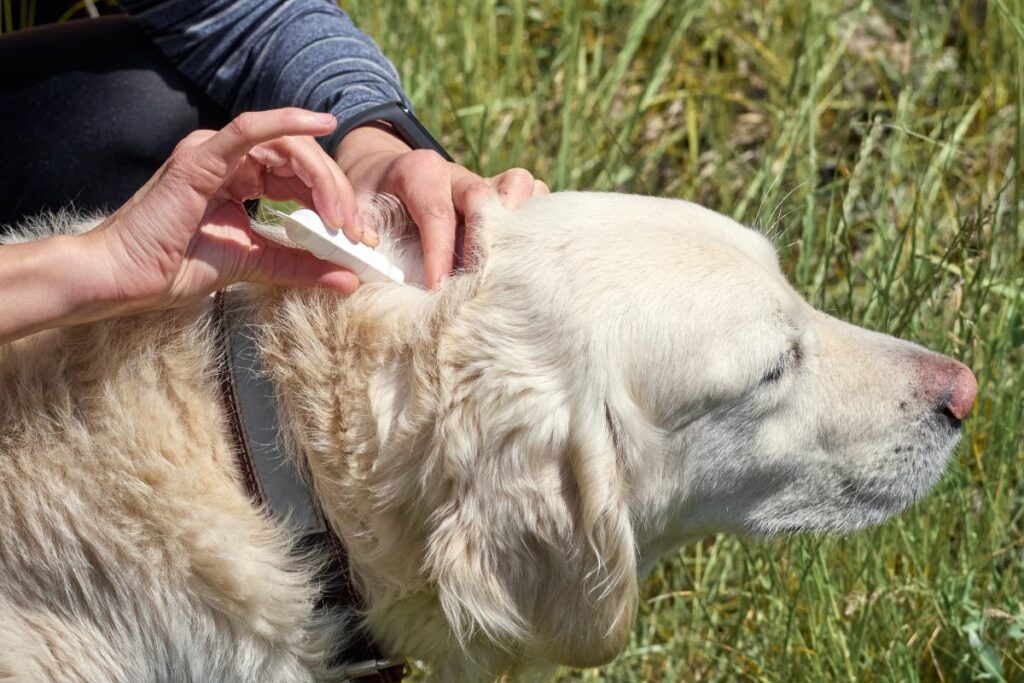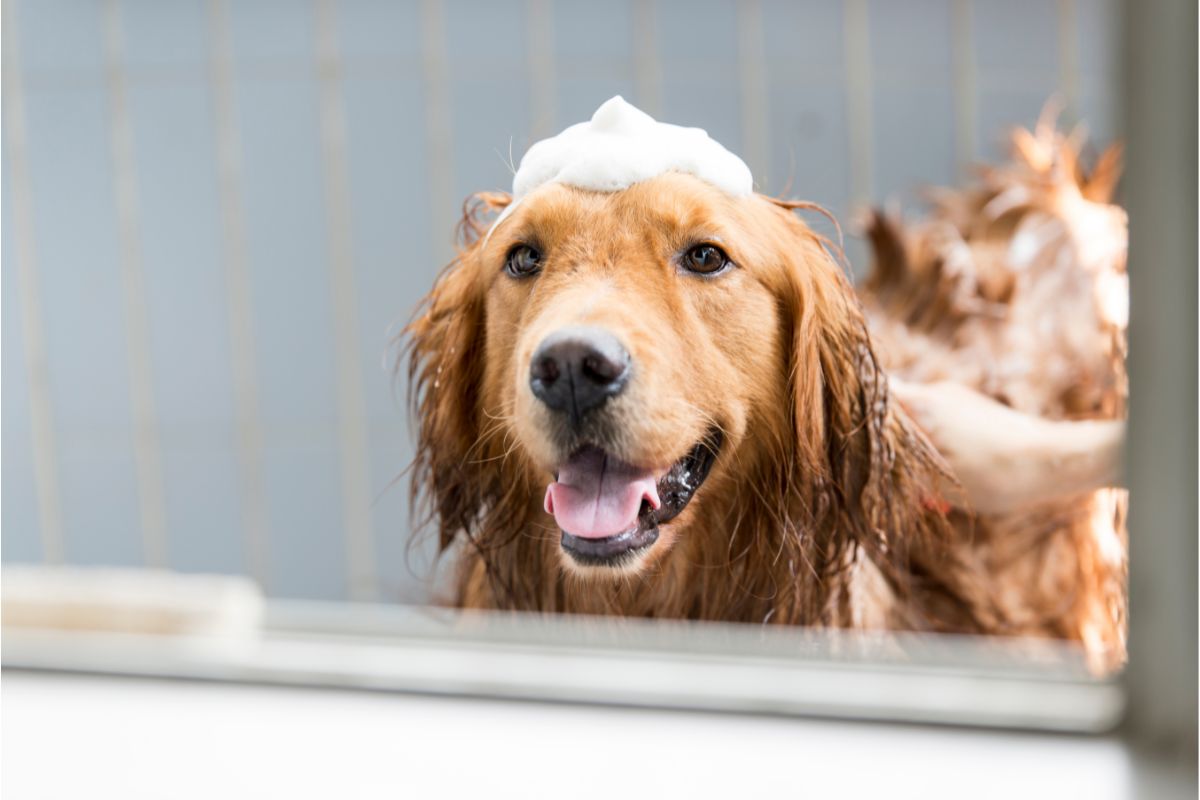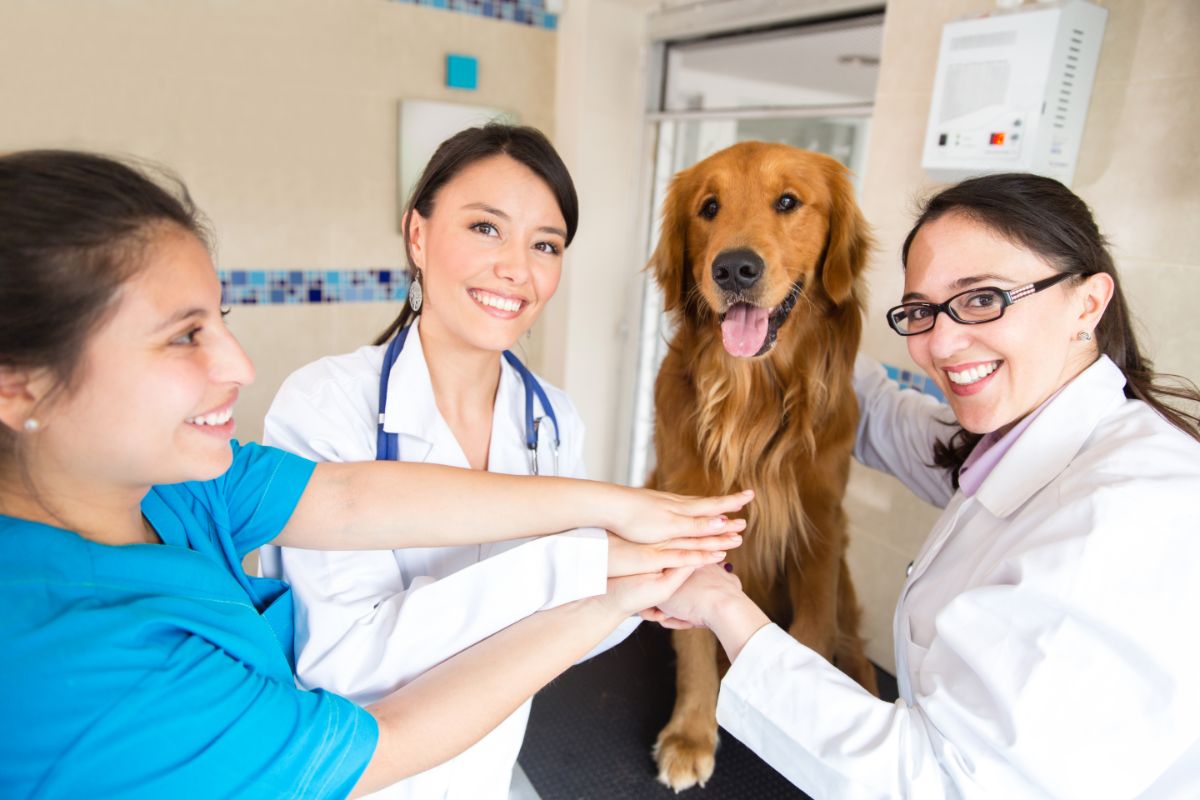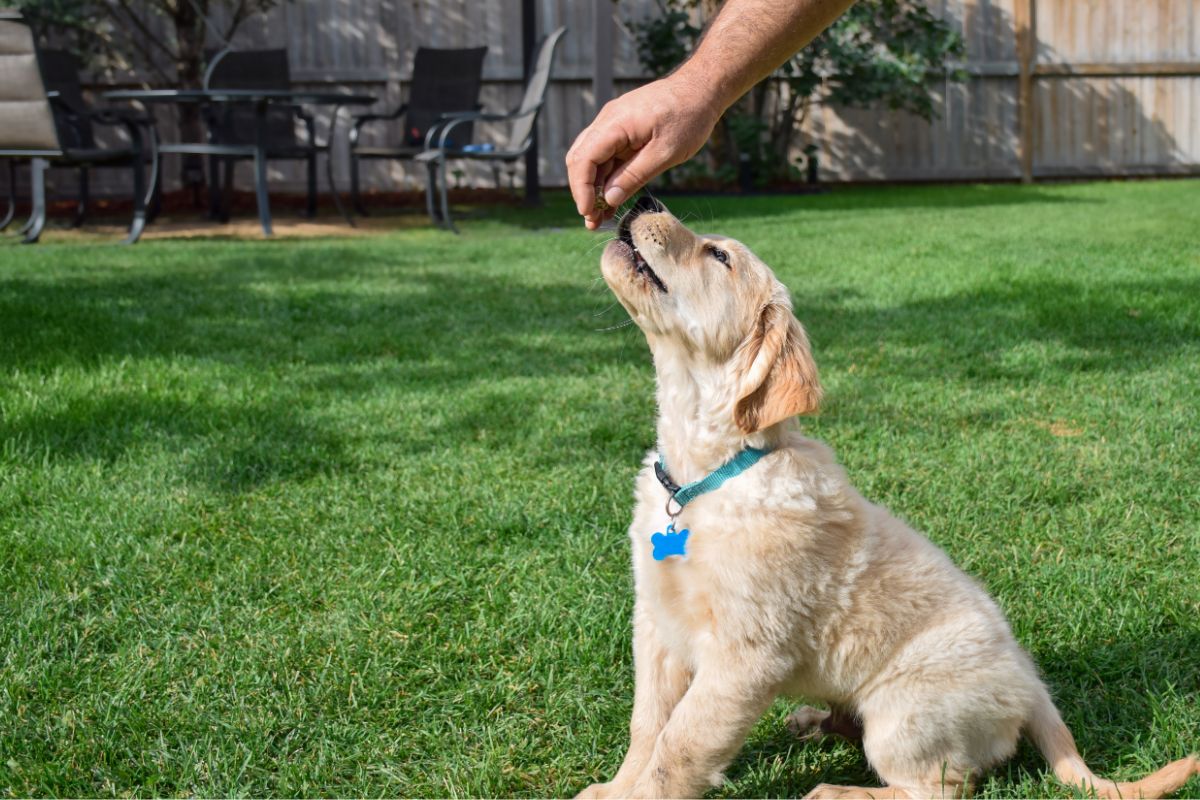Welcome to our essential puppy care guide! Bringing a new puppy into your life is an exciting experience for both you and your furry friend. As responsible pet parents, it’s crucial to ensure your little bundle of joy stays healthy and happy.
One of the key aspects of puppy care is keeping them free from pesky fleas and harmful worms.
In this comprehensive guide, we’ll walk you through the essential steps to protect your pup from these common health concerns.

From prevention to treatment, we’ve got you covered so you and your puppy can enjoy a wonderful, worry-free journey together.
Identifying Fleas
You’ve probably heard of fleas, but if you’re new to pet ownership (or have just been very lucky), you might not have come across them in your life before.
Fleas are an incredibly prevalent parasite that is constantly shedding eggs and sucking blood. They can make your pet incredibly itchy and even lead to more complex issues if left untreated.
They can be identified either by noticing small, black bugs in your pet’s fur but also by “flea dirt,” which will just look like dark crumbs in their fur.
If you spot either of these, it’s important to get your dog a flea bath straight away, wash or otherwise throw away any clothes or blankets that have come into contact with your puppy, and call your vet if you require any further help.
Regularly grooming your pup can help you keep an eye out for fleas and head them off at the pass.
Identifying Worms
Where fleas are external parasites, worms are internal. You might not be able to tell as obviously if your dog has worms, so here are the things to look out for.
The first signs could include your dog scratching or rubbing their rear very frequently, particularly dragging their butt on the ground.
If you notice this behavior, you should check the fur around your dog’s rear and also their feces for visible worms.
Most of the time, these will be thin, white, wriggly lines. These will also be visible in your dog’s vomit.
Seeing these worms can be very distressing; that’s why you should contact your vet at the first sign of infection to start treatment so things don’t get so bad.
How Do Puppies Get Worms And Fleas?
Spending time outside, particularly in the grass, is the easiest way for puppies to come into contact with fleas or worms.
Even if your puppy isn’t spending much time outdoors yet, if you have other pets that go out for walks or to run around, they could easily bring the parasites back into your home.
Whilst you have animals that spend time outdoors, you can never guarantee that they won’t bring worms or fleas back into the house. This is one of the reasons that prevention is so important.
Young pups can also contract pests from their parents if they’ve not been treated. This is especially true for worms, which can be passed on during nursing.

Why Deworming And Defleaing Are Important
There are numerous health risks involved with leaving fleas or worms untreated, more than just being uncomfortable for your pet – although we think a pet’s discomfort is more than enough reason to treat for parasites.
For example, untreated fleas can result in your dog being anemic and more susceptible to illnesses and other diseases.
As well as this, the fleas can jump and infest your other pets and home, leading you or your family to deal with flea bites and eventually an exterminator if you’re not able to control the outbreak.
Worms can also infect you and your family, leaving you potentially very unwell.
These internal parasites come in a lot of different forms, including roundworm, hookworm, tapeworm, and, worst of all, lungworm. Lungworms can be fatal, so prevention is key when it comes to these parasites.
What Treatments Should I Use?
There are a lot of different treatments and precautions that you can use for your puppies when they’re as young as four weeks old, so long as they weigh at least 2 pounds.
Any less than this, and you should consult with your vet about the best way to go about treating and preventing fleas and worms.
For example, for fleas, most people will recommend spot-on treatments that can kill adult fleas and eggs and can break the parasite’s life cycle.
There are other treatments and even preventatives you can try, such as sprays, shampoos, and flea collars, but in our experience, the spot-on treatments are the most effective when dealing with fleas or even preventing them.
As for worms, you can get natural or medical-grade dewormer that can be added to your puppy’s food once they’ve been weaned off their mom; that should work as a good preventative and destroy any worm eggs that might already be waiting in your puppy’s belly.
If you have a fussy pup, speak to your vet about trying a spot-on dewormer instead – it can be a lot more fuss-free.
The Final Woof
We hope that you’ve gained valuable insights into keeping your furry companion healthy and happy.
With dedication and a few simple steps, you can create a safe haven for your pip, free from fleas and worms.
Remember to consult your veterinarian for tailored advice, as your puppy’s needs may vary. The well-being of your four-legged friend is a shared responsibility, and it’s a journey you and your pup will travel together.
By staying informed and proactive, you’re providing your pup with the best start in life. Here’s to many tail-wagging, joyful moments ahead.
Further reading: How to bathe your retriever.
Frequently Asked Questions
It’s recommended that you perform worming treatment on your puppy every two weeks until they’re 12 weeks old.
At this point, you should worm once a month until they’re six months old. After this, you can start worming them just once every three months for the rest of their life.
Many flea treatments can be used from 7-8 weeks of age. Many flea treatments should be applied monthly to keep your pooch free from fleas.
It’s recommended that you leave anywhere between 48 hours and two weeks between defleaing and deworming, depending on the types of treatments being administered. If you’re not sure, talk to your vet.








